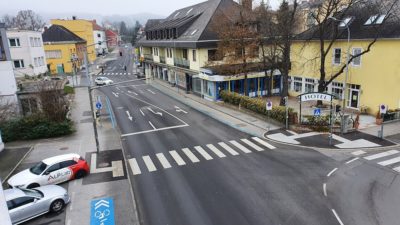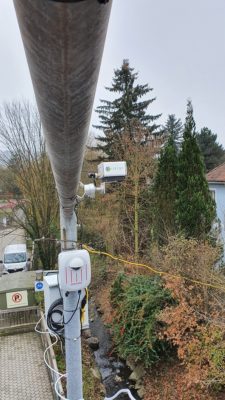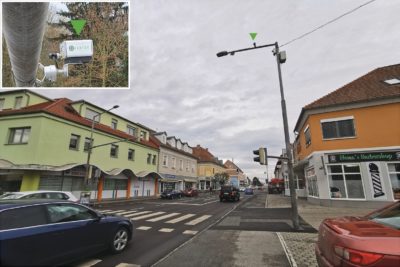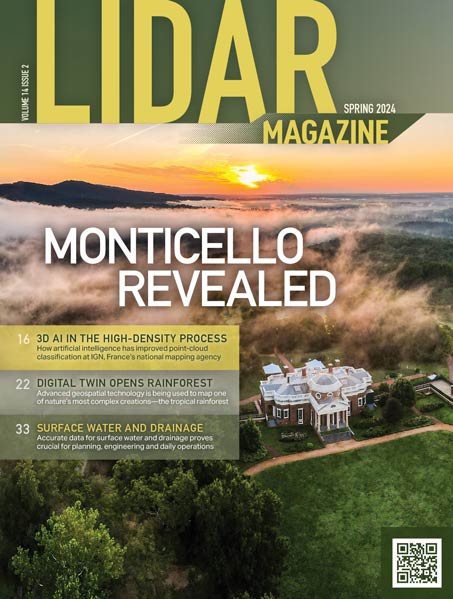Cutting-edge project to build reliable testing environments for autonomous vehicles and deliver real-world traffic data analytics

View of Cepton Sensor
Cepton, a leading provider of intelligent, lidar-based solutions, and the Austrian Industry and Testing Alliance ALP.Lab have partnered to build lidar-equipped testing environments for studying complicated road driving situations. For the first time in Austria, this project will deliver real-world traffic data from complex urban and rural alpine intersections.
As an alliance of automotive suppliers such as Magna and AVL, and as a partner to scientific organizations like Virtual Vehicle Research, Joanneum Research and Graz University of Technology, ALP.Lab delivers real-life data on complex traffic situations to test the capabilities of the autonomous driving systems, and helps enable solutions to reduce accidents and improve traffic flows.
From narrow, foggy streets covered in snow, to cyclists overtaking a tram in the middle of an intersection, Austria, with its mountainous landscape, sees varied road driving scenarios and faces unique challenges in ensuring vehicle and pedestrian safety. Difficult traffic scenarios could pose obstacles for the seamless deployment of autonomous mobility solutions. Compiling a realistic database of different driving scenarios is, therefore, pivotal to the testing and verification of advanced driver assistance systems (ADAS) and autonomous vehicles (AVs), to ensure that they work well in complex environments.
Through this new partnership, ALP.Lab has deployed Cepton’s Helius™ Smart Lidar System to capture real-time, 3D traffic data to support the training of artificial intelligence (AI) algorithms used for the scenario-based testing of ADAS and AV features. Additionally, the collected data will make it possible to predict vehicle trajectories at intersections and enable traffic data analysis for traffic flow optimization.
 As part of the Helius system, a number of Vista®-P60 lidar sensors from Cepton have been installed at the corners of road intersections and traffic roundabouts, complementing other sensor types including radar and other types of optical sensors. For traffic monitoring and analysis applications, lidars perform well in many critical cases where other sensor types struggle. Lidars offer 24/7 availability thanks to their superior perception capabilities in various lighting conditions, such as night-time, shadows and the glare of strong headlights. Lidars also offer much higher angular resolution compared to radars and minimize false negatives and false positives. The Vista-P60 lidars, powered by Cepton’s patented Micro Motion Technology (MMT®), offer a high detection range of 200 m at 30% reflectivity and an angular resolution of 0.25°, making it possible to accurately detect each arriving and departing vehicle and pedestrian at a distance of up to ~170 meters around the intersections.
As part of the Helius system, a number of Vista®-P60 lidar sensors from Cepton have been installed at the corners of road intersections and traffic roundabouts, complementing other sensor types including radar and other types of optical sensors. For traffic monitoring and analysis applications, lidars perform well in many critical cases where other sensor types struggle. Lidars offer 24/7 availability thanks to their superior perception capabilities in various lighting conditions, such as night-time, shadows and the glare of strong headlights. Lidars also offer much higher angular resolution compared to radars and minimize false negatives and false positives. The Vista-P60 lidars, powered by Cepton’s patented Micro Motion Technology (MMT®), offer a high detection range of 200 m at 30% reflectivity and an angular resolution of 0.25°, making it possible to accurately detect each arriving and departing vehicle and pedestrian at a distance of up to ~170 meters around the intersections.
The advanced Helius perception software adds an additional layer of intelligence to the lidar data from the Vista-P60. Helius takes the point cloud data from a connected network of Vista-P60 sensors and delivers real-time, 3D information on object dimensions, locations and velocities. This enables Helius to accurately track and classify the different objects involved in a traffic situation. As Helius and the other sensors used by ALP.Lab only capture anonymized data, it protects the privacy of pedestrians and vehicles while feeding ALP.Lab rich traffic data for deeper analysis.
The Helius Smart Lidar system offers optimal ease of integration. The rotation-free, mirrorless and frictionless design makes Vista-P60 sensors very durable and embeddable. The rugged sensor housing is designed to withstand harsh outdoor environments and cold climates, resulting in product robustness and longevity to drive down maintenance costs. With the pre-installed Helius software running on an edge computer, which connects a scalable network of lidar sensors, Helius is a truly plug-and-play system that is extremely easy to set up and scale up.
“We primarily selected Cepton´s lidar solutions because of their durability and precise detection capabilities even at high vehicle speeds. With the information the lidar sensors provide, our data is as close to real-life as it gets. Therefore, we are able to create enhanced simulation and AV testing environments as well as detailed analyses of the traffic flow,” said Christian Schwarzl, Director of Testing and Validation from ALP.Lab. “There is amazing synergy between Cepton and ALP.Lab, as we share the same goal of making ADAS and AV features available to the mass market and to improve the safety of vulnerable road users.“
“Lidar plays a crucial role in the future of autonomous mobility, by not only serving as the “eyes” of vehicles but also bringing intelligence to the traffic infrastructure supporting safe autonomy. In order to make ADAS and AV capabilities available to the broader public, it is crucial to gather information on traffic scenarios that all vehicles are likely to be confronted with, in order to generate proper testing environments and ensure safer roads”, said Dr. Jun Pei, CEO of Cepton. “So, we are excited to partner with ALP.Lab in this endeavor, and we are gratified that our technology can contribute significantly to its success.”

